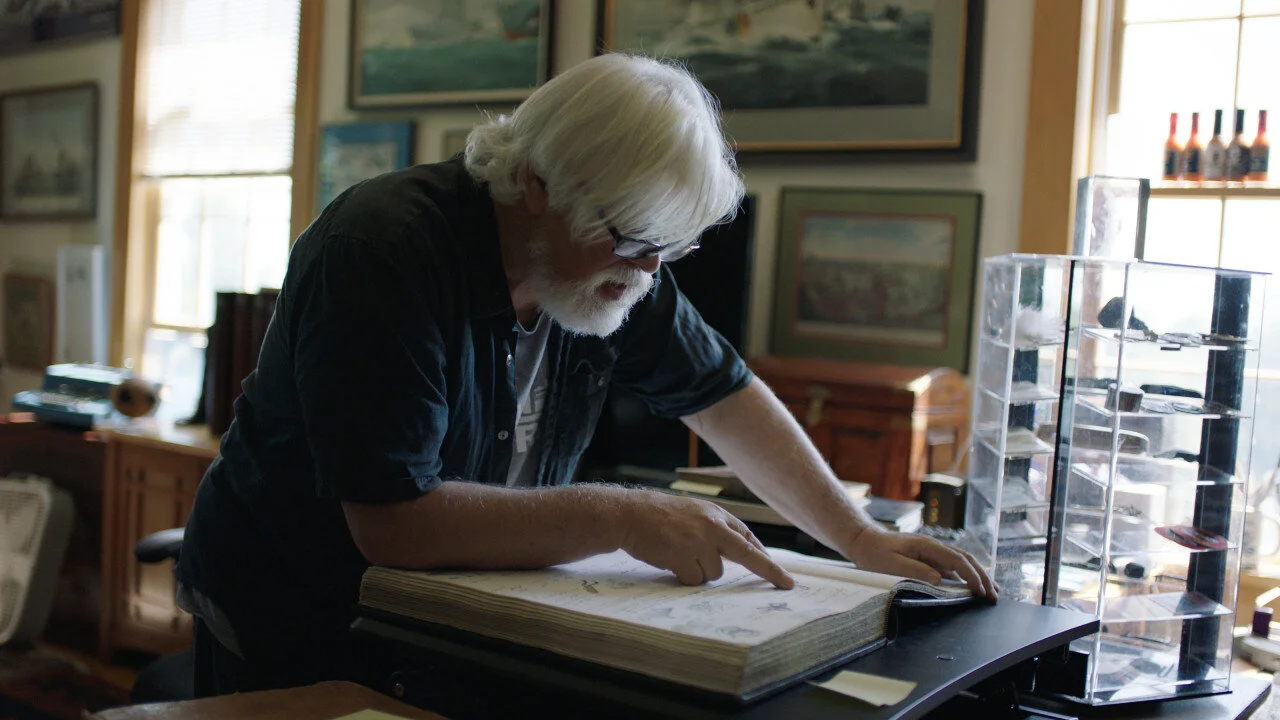Watson: Doc of Sea Shepherd Founder and Eco-Warrior Drowning in Deference
By Liam Lacey
Rating: B
Heroes aren’t necessarily nice guys, and eco-warrior Paul Watson — who is famous for ramming, sinking, and generally interfering with whaling ships — is a polarizing figure even for many who share his impassioned environmental message.
The 70-year-old activist’s confrontational style and familiar stories often feel like a man building and polishing his own hero myth. That includes his oft-told account of his Road to Damascus moment: During a confrontation with a Soviet whaling ship, a dying bull whale spared Watson and his crew’s lives; when he met the whale’s gaze, Watson was convinced he had found his life’s purpose.
Director Lesley Chilcott mostly stands back and let’s Watson talk, mixing the talking-head interview with copious archival footage of Watson and his crew in white-knuckle confrontations, as well as beautiful high-res underwater footage. The narrative follows his career in chronological fashion, from childhood, to the early seventies to the present.
Never a real peacenik, Watson split from the Vancouver-founded Greenpeace in the mid-seventies and formed his own Sea Shepherd Conservation Society, determined to take the fight directly to the hunters and fishermen. That led to a series of high-profile confrontations with Russian, Icelandic, and Japanese whalers, and Guatemalans catching sharks for the Chinese shark fin soup market.
Throughout his decades at sea, Watson filmed everything obsessively, partly for legal defense but also for publicity. That eventually led him to a long-running show on Animal Planet, called Whale Wars. He claims that, after attending a guest lecture by Marshall McLuhan at Simon Fraser (a couple of archival clips of McLuhan are gratuitously included), he understood how to use the media.
PROUDLY SUPPORTS ORIGINAL-CIN
In fact, Watson gets McLuhan wrong and Chilcott fails to fact-check him. (For the record, McLuhan said newspapers are the hot medium, television the cool one, not the other way around.)
The error is symptomatic of Watson’s tendency to pontificate and Chilcott’s over-respectful approach. No negative voices are included here, in what amounts to something like a richly illustrated version of a TED talk.
Watson’s at his most impassioned and moving when breaking down how interlocking life systems that make life on earth possible. When the oceans die, the planet dies. We’re the passengers on space-ship earth, and we’re killing off the crew.
As the film ends, we see Watson has a new wife and toddler boy. He says that the family was an unexpected blessing when he was forced to stay ashore, facing an Interpol red notice (the equivalent of an international arrest warrant.) He acknowledges his earlier failures as a husband and father, while excusing them as casualty of his dedication to his mission.
The film, Watson — which bears the progressive Participant Media logo — may help introduce Paul Watson’s ocean activism to a wider audience, but it’s a limited study. For a far better-rounded, less deferential portrait of Watson, I recommend Trish Dolman’s 2011 Eco-Pirate: The Story of Paul Watson, a film shot over seven years which also includes perspectives from Watson’s critics and estranged family members (two of his four wives don’t rate a mention in the current documentary). Dolman’s documentary was an overall admiring but critical character study; the current film is more of an advertorial for Watson’s cause.
Watson. Directed by Lesley Chilcott. With Paul Watson. Opens theatrically for one day only, November 7, at Cineplex Odeon International Village (Vancouver), Cineplex Odeon South (Edmonton), Scotiabank Theatre (Saskatoon), Cineplex Cinemas Park Lane (Halifax), Galaxy Cinemas (Barrie), Cineplex Odeon Niagara Square (Niagara Falls), Cineplex Cinemas Mount Pearl (NL), Cineplex Galaxy (Sherbrooke, QC), and online beginning November 20.



